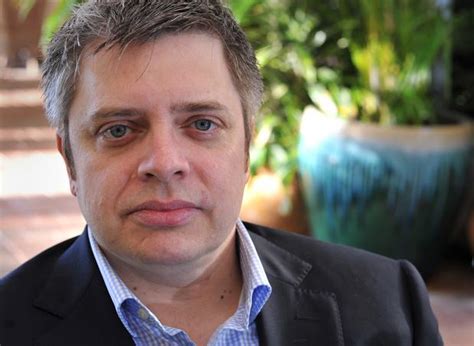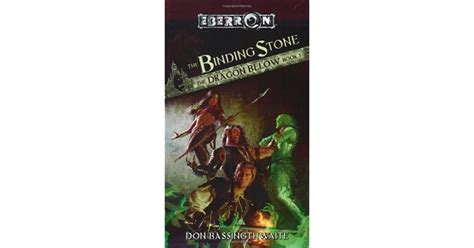Цитата Нила Геймана
Мы не всегда помним то, что не делает нам чести. Мы оправдываем их, покрываем яркой ложью или густой пылью забвения. Все то, что Тень сделал в своей жизни, чем он не гордился, все то, что он хотел бы сделать иначе или не сделать, обрушилось на него вихрем вины, сожаления и стыда, и ему некуда было деваться. спрятаться от них. Он был наг и открыт, как труп на столе, а темный бог-шакал Анубис был его прозектором, его обвинителем и его преследователем.
Связанные цитаты
Когда Христос собирался покинуть мир, Он составил Свою волю. Свою душу Он вверил Своему отцу; Свое тело Он завещал Иосифу для благопристойного предания земле; Его одежда упала на солдат; Свою мать Он оставил на попечение Иоанна; но что Он должен оставить Своим бедным ученикам, которые оставили все для Него? Серебра и золота у Него не было; но Он оставил им то, что было бесконечно лучше, — Свой покой.
Что нам нужно только признать БОГА близко присутствующим с нами, обращаться к Нему каждую минуту, чтобы мы могли просить Его помощи для познания Его воли в вещах сомнительных, и для правильного исполнения того, что, как мы ясно видим, Он требует от нас, предлагая их Ему, прежде чем мы их делаем, и благодарить Его, когда мы сделали.
Перерыв на выходных начался с обычной обиды и продолжился полусдерживаемым дурным настроением. Это была, конечно, его вина. Он был более готов задеть чувства жены и лишить дочь, чем доставлять неудобства бару-пабу, полному незнакомцев. Ему хотелось, чтобы хоть одно воспоминание о его мертвом ребенке не было запятнано виной и сожалением.
Жил-был человек, который ненавидел свои следы и свою тень, поэтому однажды он подумал, что если он будет бежать достаточно быстро, его следы и тень не смогут следовать за ним, и тогда ему никогда больше не придется смотреть на них снова. Он бежал и бежал так быстро, как только мог, но тень и следы без проблем поспевали за ним. И он побежал еще быстрее и вдруг упал замертво на землю. Но если бы он стоял неподвижно, следов не было бы, а если бы он отдыхал под деревом, его тень поглощалась тенью деревьев.
Мой отец поставил эти вещи на стол. Я посмотрел на него, стоящего у раковины. Он мыл руки, брызгал водой на лицо. Мама ушла от нас. Мой брат тоже. А теперь еще и мой безрассудный, безрассудный дядя. Но мой папа остался. Мой папа всегда оставался. Я посмотрел на него. И увидел пятна пота на его рубашке. И его большие, покрытые шрамами руки. И его грязное, усталое лицо. Я вспомнил, как несколько ночей назад, лежа в своей постели, я с нетерпением ждал возможности показать ему деньги моего дяди. Сказать ему, что я ухожу. И мне было так стыдно.
Но всем троим пришлось что-то потерять, чтобы приобрести что-то другое. Уилл потерял свою оболочку, хладнокровие и отстраненность, он чувствовал себя напуганным и уязвимым, но он должен быть с Рэйчел; и Фиона потеряла большую часть Маркуса, и ей пришлось держаться подальше от отделения неотложной помощи; и Маркус заблудился, и ему пришлось идти домой из школы в своих ботинках.
Было слишком много шума. Сирены полицейских машин и машин скорой помощи. Крики толпы на улице восемнадцатым этажом ниже. Движение с других улиц и весь шум Сан-Франциско. Но в основном это были голоса. Шепчу ему. Напоминая ему о темных вещах, которые он совершил, обо всех мелочах, которые он забыл, обо всех больших вещах, которые он пытался забыть. В основном они напоминали ему о его самом большом секрете, о давнем предательстве доверия и дружбы. Он зажмурил глаза, как будто это могло каким-то образом удержать голоса.
Возможно, было бы нелишним указать, что он всегда старался быть хорошим псом. Он пытался делать все, о чем его МУЖЧИНА и ЖЕНЩИНА, а больше всего его МАЛЬЧИК, просили или ожидали от него. Он бы умер за них, если бы это потребовалось. Он никогда не хотел никого убивать. Его что-то поразило, возможно, судьба, или судьба, или просто дегенеративное заболевание нервов, называемое бешенством. Свобода воли не была фактором.
В чем заключается претензия поэта на оригинальность? Что он выдумывает свои инциденты? Нет. Что он присутствовал при рождении его эпизодов? Нет. Что он первый их повторил? Нет. Ни одна из этих вещей не имеет никакой ценности. Он сообщает им их единственную оригинальность, которая имеет какую-либо ценность, и это его способ рассказать им.
Все уже принадлежит Богу; мы не можем дать ему никакого права, освятив какое-либо, которого он не имел раньше, только мы выделяем его на его службу - подобно тому, как садовник приносит своему хозяину корзину абрикосов и преподносит их; его господин благодарит его и, может быть, дает ему что-нибудь за его старания, а между тем абрикосы прежде принадлежали его господину не меньше, чем теперь.
Его жизнь была ничем? Ему нечего показать, нет работы? Он не считал свою работу, ее мог сделать любой. Что он знал, кроме долгих супружеских объятий с женой. Любопытно, что в этом заключалась его жизнь! Во всяком случае, это было что-то, это было вечно. Он сказал бы это любому и гордился бы этим. Он лежал с женой на руках, и она по-прежнему была его удовлетворением, таким же, как и всегда. И это было все и конец всего. Да, и он гордился этим.
Верующий осознает свои немощи, ибо предполагается, что он борется с ними. Он видит, он чувствует, что он недостаточно мужественен для своей работы; что его собственных рук недостаточно для него и его собственной спины для его ноши; это то, что выводит его из себя к благодати во Христе Иисусе. И таким образом он открыт для помощи Духа, тогда как гордая природа в неверующих остается беспомощной.

































